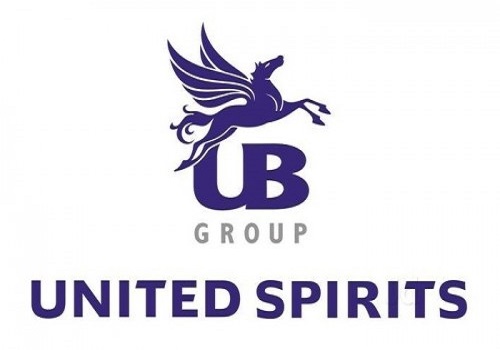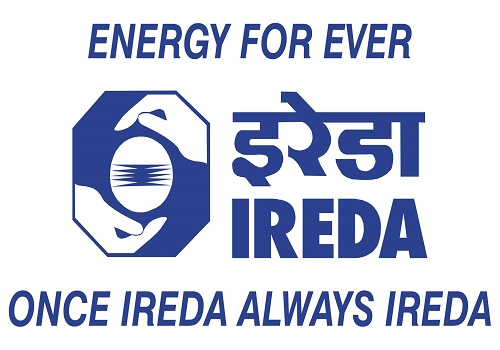Diageo India`s Rs.49,000 Cr Impact on Economy & Jobs – Pahle India Foundation Study

EXECUTIVE SUMMARY
This report offers a comprehensive analysis of Diageo India's economic and social footprint, which is also incorporated as United Spirits Limited (USL), highlighting both the direct and indirect impacts of its operations across the country. Using Leontief's input-output model, the study estimates the broader impact on employment and value addition. Additionally, the report examines employee satisfaction, sustainability initiatives, corporate social responsibility (CSR) activities, and fiscal contributions to government revenues. The socio-economic impact analysis is critical because it moves beyond traditional financial metrics to capture the strong linkages in both the backward and forward-linked industries.
Diageo India's operations create a significant direct and indirect impact on the economy as revealed through input-output (IO) framework. The input-output analysis revealed that the indirect impact on the economy was roughly equivalent to the direct effects. The overall value addition to the economy stands at approximately INR 49,000 crores, resulting in the creation of roughly 6,50,000 jobs nationwide. The positive effect was spread across several backwards-linked industries such as the agriculture sector, glass industry, and plastic industry, as well as forward-linked industries such as tourism and hospitality and business services.
In a sector as tightly regulated and socially visible as the Alcoholic Beverages industry (AlcoBev), understanding the ripple effects of operations and their impact on other sectors can inform more effective business strategies, public perceptions, and policy alignment. The insights from this report are intended to support evidence-based dialogue with stakeholders, namely governments, investors, and communities, on how this corporation can drive inclusive and sustainable development.
Diageo India's direct economic impact is geographically widespread, with its 36 manufacturing facilities located across several states in India. This ensures that the benefits of employment generation, income creation, and skill development are distributed across regions, fostering a more balanced regional economic growth.
Diageo India's economic footprint is substantial, which also makes it a key player in the segment. Diageo India employs over 5,000 individuals and directly contributes 1 INR 25,000 crores in gross value added to the economy.
Over the past five years, it has demonstrated consistent profit growth, estimated at 13%, reflecting its ability to efficiently manage operations and allocate scarce resources to their most productive uses. This sustained performance underscores its role as a resilient and adaptive economic player.
Diageo India also contributes significantly to government finances through excise duties, VAT/CST, customs duty (including duty scripts), GST, income tax, and license 2 fees, amounting to INR 20,417 crores in FY24. A substantial portion of this comes from excise duty, which forms the backbone of state revenue, a critical fiscal resource for seve
Each INR 1 crore in direct output generates an equivalent amount in indirect value added and supports over 6,00,000 jobs across the supply chain and allied industries. Some major sectors positively affected by the company's operations include agriculture (especially grain procurement), packaging and glass manufacturing, logistics and warehousing, travel and tourism and wholesale trade. These sectors experience significant gains in value addition and employment, establishing the company as a key contributor to rural and urban livelihoods. For instance, the agriculture sector adds nearly INR 4,000 crores to the economy as a result of Diageo's operations, creating employment opportunities for 3,00,000 people.
Importantly, they source a significant portion of their input from local suppliers. This localised procurement strategy ensures that the indirect economic effects remain heavily concentrated in domestic industries, stimulating regional economies, supporting small and medium enterprises, and deepening rural-urban economic linkages.
Survey studies suggest that over 97% of employees report high levels of job satisfaction, reflecting a strong commitment to workplace safety, inclusivity, and career development. Fair wages, access to healthcare, and well-enforced safety protocols contribute to the satisfaction levels of the factory workers. Executive employees report high engagement due to opportunities for professional growth, leadership training, and performance-linked incentives.
The company offers a comprehensive benefits package tailored to both segments. The benefits package comprises medical insurance, provident fund contributions, provision of safety gear and measures, transportation support, structured career advancement opportunities and training programs, mental health and wellness support, performance-based rewards, and flexible working policies. Together, these measures foster a stable, secure, and fulfilling work environment across the organisation.
Over the past three years, the company has reduced water consumption by 11% and overall water withdrawal by 10%. This remarkable feat was achieved as a result of efforts made at the plant level. The company has improved its water-use efficiency by 48% in distilleries and by 31% in packaging. These improvements reflect the successful implementation of advanced water management technologies, recycling systems, and process optimisation initiatives within the company.
In terms of renewable energy, several plants have already started using renewable energy sources to meet more than 80% of their energy requirements, significantly reducing reliance on conventional fossil fuels. Since 2022, the company has made a conscious decision to eliminate the use of coal and replace it with biomass-fueled boilers at its distilleries. Additionally, the company has achieved a notable reduction 3 in Scope 1 emissions , cuing them by 87% over the past five years. This was achieved through concerted efforts to reduce energy demand, and enhancing the use of lowcarbon fuel alternatives, which reflects the company's dedication towards decarbonising its operations and aligning with global sustainability standards. As a part of decarbonisation strategy, the company increased its in-house solar energy capacity to 2.6 MW and achieved 98.6% renewable energy use status in direct operations.
To further mitigate its carbon footprint, the company has been actively purchasing International Renewable Energy Certificates (I-RECS), effectively reducing its 4 Scope 2 emissions by 98%. This strategy helps compensate for emissions generated through the purchase of grid electricity, contributing to the company's broader goal of achieving net-zero emissions.
Beyond water and energy, the company has implemented robust waste segregation and treatment systems, contributing to a lower ecological footprint across its production footprint and reinforcing its broader environmental goals.
The company is commied to making people's lives beer through its Corporate Social Responsibility (CSR) initiatives, which are designed to create long-term, sustainable value for communities. Its CSR activities span across major focus areas such as community development, healthcare, access to water, women's empowerment, and livelihood generation.
The company spends approximately INR 20 crores on CSR programs each financial year, positively impacting over 1,00,000 people across various regions. The company's CSR initiatives not only improve the social standing of the beneficiaries by giving them access to beer services and opportunities but also enhance their economic resilience by equipping them with the skills, resources, and support systems necessary for long-term upliftment.
Diageo India contributes not only to economic output but also to government revenues, social development, and environmental sustainability. Its operations exemplify how responsible corporate behaviour can drive multidimensional value. With continued focus on inclusive strategies and collaborative growth, the company can play a catalytic role in India's developmental landscape.
Above views are of the author and not of the website kindly read disclaimer





















